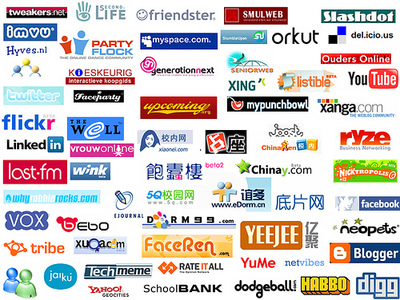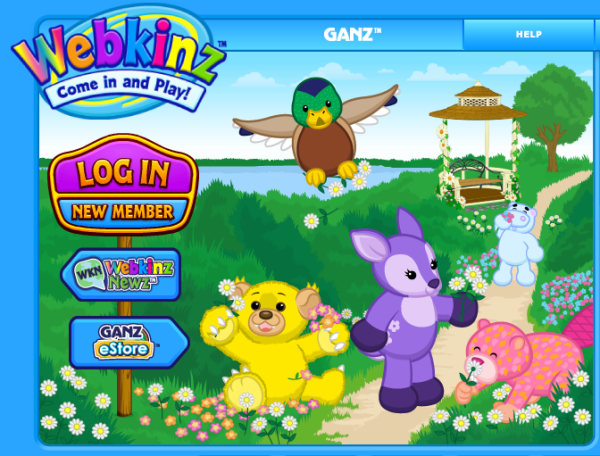Everyone these days belongs to some kind of social network - teens in particular are enamored with social media and facebook for kids. They love having the ability to know everything that their friends are doing at all times, all the time. One of those social networks is called FourSquare, and many of you know what it is, or at least heard it mentioned.
For those of you who don't know what FourSquare is; its a social network, most commonly used through an "App" on a mobile phone. Users are encouraged to "Check-in" when they arrive at any number of locations. Restaurants, bars, schools, offices and even homes and apartments have the ability to create a location where any user can "Check-in" and receive points for doing so. Companies most often use the service to promote deals and encourage visitors, but kids and teens most often use the social network as a game to see who can get the most points.









 Kids today keep track of their homework assignments, their schedules, and their lives in general on social networks. Just one more reason for parents to keep an eye on their teen's Facebook and MySpace pages.
Kids today keep track of their homework assignments, their schedules, and their lives in general on social networks. Just one more reason for parents to keep an eye on their teen's Facebook and MySpace pages. Burnbook.com not only helps cyberbullies spread nasty rumors about whoever they want with complete anonymity, it can also help them publicize it to the whole school.
Burnbook.com not only helps cyberbullies spread nasty rumors about whoever they want with complete anonymity, it can also help them publicize it to the whole school. Older studies reported that the age of the average online gamer was somewhere in the 40s. But now, the age of the average gamer is 32. What does this mean? It means that tweens are entering the mix – and they’re most likely yours.
Older studies reported that the age of the average online gamer was somewhere in the 40s. But now, the age of the average gamer is 32. What does this mean? It means that tweens are entering the mix – and they’re most likely yours. Sort of a Tamagotchi-Pokémon hybrid, Neopets is an online game where players earn and spend virtual Neopoints to customize and care for up to 4 colorful cartoon animals.
Sort of a Tamagotchi-Pokémon hybrid, Neopets is an online game where players earn and spend virtual Neopoints to customize and care for up to 4 colorful cartoon animals. You don’t need an expert to tell you that you lived a different childhood than your kids do. You remember when you had to get up and turn the dial on the TV to change channels; your teen can’t understand how a world without Facebook or MySpace would even function.
You don’t need an expert to tell you that you lived a different childhood than your kids do. You remember when you had to get up and turn the dial on the TV to change channels; your teen can’t understand how a world without Facebook or MySpace would even function. Now that most kids carry their video-enabled cell phones around everywhere with them, everybody is a cameraman. This can be a good thing – we’ve all heard stories about a thief who was caught because a bystander just happened to catch the robbery on his
Now that most kids carry their video-enabled cell phones around everywhere with them, everybody is a cameraman. This can be a good thing – we’ve all heard stories about a thief who was caught because a bystander just happened to catch the robbery on his YouTube provides a completely free platform for uploading, sharing, and viewing video content on any subject. You can laugh over a parody of Twilight, see your nephew take his first steps, learn how to seal the grout on your tile floor, or prove to your kids that an octopus can, in fact, fit through an opening the size of a quarter. Here’s what you need to know about using this
YouTube provides a completely free platform for uploading, sharing, and viewing video content on any subject. You can laugh over a parody of Twilight, see your nephew take his first steps, learn how to seal the grout on your tile floor, or prove to your kids that an octopus can, in fact, fit through an opening the size of a quarter. Here’s what you need to know about using this  Surely you’ve seen those cuddly little stuffed animals called Webkinz. Maybe your child just received their very first Webkinz as a gift, or announced that he wants to collect them like so-and-so at school, or is already playing Webkinz but you aren’t sure that it’s totally safe. Here’s a fast Webkinz tutorial for parents.
Surely you’ve seen those cuddly little stuffed animals called Webkinz. Maybe your child just received their very first Webkinz as a gift, or announced that he wants to collect them like so-and-so at school, or is already playing Webkinz but you aren’t sure that it’s totally safe. Here’s a fast Webkinz tutorial for parents. As the word
As the word  I’m pleased to announce that MySpace has now been added to our service via the FamilyConnect platform. This new feature enables you to better educate, engage with and protect your child when they use the
I’m pleased to announce that MySpace has now been added to our service via the FamilyConnect platform. This new feature enables you to better educate, engage with and protect your child when they use the  The cyberbullying-induced suicide of Massachusetts teen Phoebe Prince in March put cyberbullying back in the spotlight. Parents need to talk to their kids, not only about what to do if they are cyberbullied themselves but also how to stop it from happening to their peers and how to avoid becoming cyberbullies themselves.
The cyberbullying-induced suicide of Massachusetts teen Phoebe Prince in March put cyberbullying back in the spotlight. Parents need to talk to their kids, not only about what to do if they are cyberbullied themselves but also how to stop it from happening to their peers and how to avoid becoming cyberbullies themselves.
